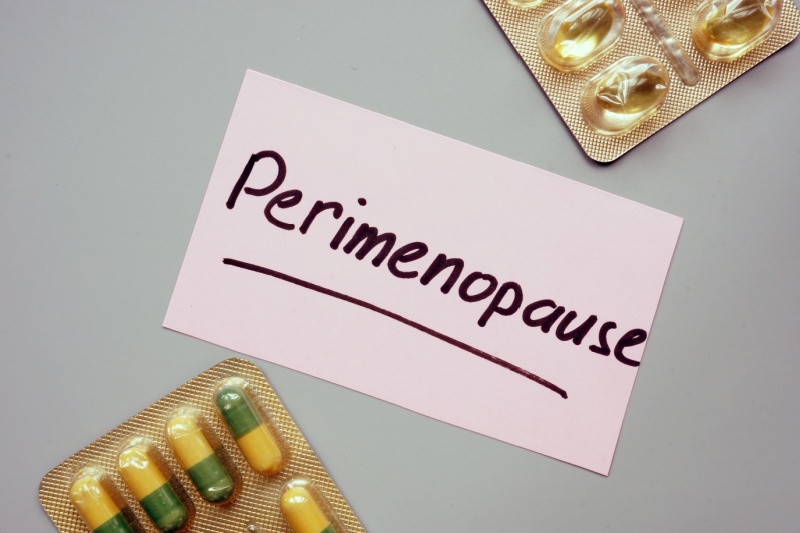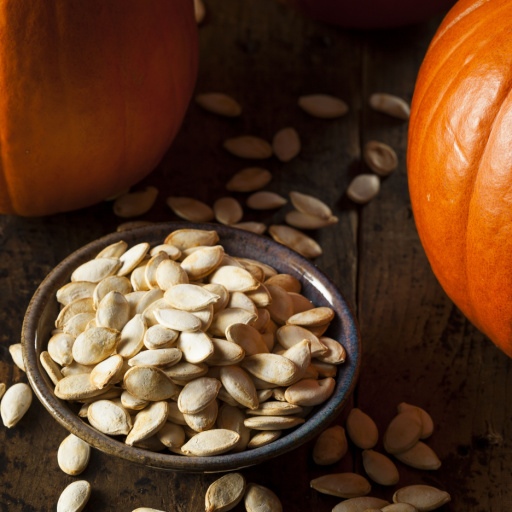Perimenopause, or the transition to menopause, involves significant physical, emotional, and hormonal changes. Declining estrogen levels and symptoms like irregular menstrual cycles, hot flashes, night sweats, sleep disturbances, and मूड में बदलाव. Understanding these changes is essential for effective symptom management and maintaining overall health.
इनके बारे में जानें:
- Understanding perimenopause
- Stages of perimenopause
- Age and perimenopause
- Perimenopause symptoms
- Treatments for perimenopause symptoms
Understanding perimenopause
 While womanhood is celebrated all around the globe, women struggle to deal with challenges and difficulties in life. A woman perfectly plays several roles to perfection while undergoing many emotional and physiological changes. One of the problems arising from these changes is perimenopause.
While womanhood is celebrated all around the globe, women struggle to deal with challenges and difficulties in life. A woman perfectly plays several roles to perfection while undergoing many emotional and physiological changes. One of the problems arising from these changes is perimenopause.
What is perimenopause?
Perimenopause is a transitional stage before menopause. It involves hormonal imbalances, wherein the ovaries produce less estrogen during a woman’s prime years. This imbalance affects the menstrual cycle, making ovulation erratic or stopping it altogether. Perimenopause is a transitional process and, therefore, cannot be determined with one single test. Factors such as age, changes in the body and menstrual history determine its diagnosis. This is because hormonal imbalances in the body cause symptoms that can continue to change along with bodily changes.
Perimenopause Vs. menopause
While perimenopause is the stage preceding menopause, menopause is the end of a woman’s menstrual cycle. It’s a natural process that’s diagnosed after a woman goes without a period for 12 months or more. It marks the transition in the body leading to the end of a woman’s reproductive years. The symptoms or bodily changes during perimenopause are often similar to those of menopause. The difference lies in the intensity of these changes, which is lower than menopause, so much so that many women don’t even notice them.
Stages of perimenopause
Perimenopause is a gradual process and has no clearly defined stages. Hormonal changes mark it and can be described as a phase between your last regular period and the last menstrual period or the onset of menopause.
How long does perimenopause last?
The time for which perimenopause can last is variable. It can be as little as two years and as many as ten years. Typically, it’s seen that perimenopause lasts for about four years in most cases.
Age and perimenopause
No matter at what age you see the symptoms, perimenopause is different from premature menopause.
Average age for perimenopause to begin
Perimenopause symptoms may be visible as early as in your 30s. In most cases, the average age for perimenopause to show is between 40 and 44 years.
Early perimenopause Vs. Premature menopause
Early perimenopause is still perimenopause. Which means it’ll still be characterized by typical perimenopause symptoms caused by hormonal imbalances. Your ovaries will produce less estrogen than usual compared to premature menopause when the ovaries completely stop estrogen production at an early age. This means ovulation or menstruation will stop.
Perimenopause symptoms
You may easily overlook perimenopause symptoms as they may not be significant. Some periods may lengthen or become irregular, while others may experience headaches or mood swings. Women often feel a heat wave travel through their bodies, called a hot flash. The symptoms of perimenopause differ from woman to woman. Here are some common perimenopause symptoms:
- Sleeping disorder
- नींद में पसीना आना
- Headaches
- Hot flashes
- Low fertility
- मूड में बदलाव
- Difficulty concentrating
- अत्यधिक पसीना आना
- Muscle or joint pain
- Vaginal dryness
- बार बार पेशाब आना
Since these symptoms may seem to be due to other underlying conditions, it’s best to talk to a healthcare professional for clarity.
Treatments for perimenopause symptoms

Since the effect of perimenopause is different for each woman, a doctor may prescribe customized treatments to deal with the symptoms. Whether it’s starting therapy or stopping certain medicines, these treatments are suggested to deal with both the physiological and psychological impacts of perimenopause.
- Hormonal therapy
Since perimenopause reduces estrogen production in the ovaries, it makes menstruation and ovulation erratic. With proper hormonal therapy, doctors can stabilize estrogen levels in your body, mitigating the effects of low estrogen production. - Hygiene solutions
Intimate hygiene is an effective perimenopause treatment. Sanitary pads and vaginal gels prescribed by the doctor can significantly reduce pain and irritation caused by vaginal dryness. - Limiting the use of birth control pills and antidepressants
Birth control pills can stabilize hormone levels during perimenopause, and antidepressants can mitigate the psychological symptoms. However, to avoid complications and side effects, use these medicines only when needed and prescribed by the doctor.
Along with treatment, dealing with perimenopause is mainly dependent on your lifestyle and habits. Poor diet and sleep, smoking or drinking can be highly detrimental to dealing with your condition. पानी की कमी न होने दें, eat healthy meals, exercise and stay in touch with your doctor. Monitor your symptoms and see your doctor if there are changes or the symptoms deteriorate.
Stay tuned to the Activ Living Community. Keep up to date with the latest health tips and trends through expert videos, podcasts, articles, and much more on पोषण, फिटनेस, सचेतन, और लाइफस्टाइल से जुड़ी बीमारियां like Asthma, Blood Pressure, Cholesterol, and Diabetes. Activ Living ke saath sahi sehat ki shuruaat ABHIkaro.
You may also be interested in the following blogs:
- Dealing With The Stress Of Family Rejections In The LGBTQIA+ Community In India
- Tips To Manage Mental Health Issues In The LGBTQIA+ Community In India
Popular Searches
How to lower blood pressure | Fruits good for liver | Unhealthy foods | रागी के लाभ | बेसल मेटाबोलिक रेट | हाई ब्लड प्रेशर के लिए एक्यूप्रेशर पॉइंट्स | Ayurvedic medicine for blood pressure | How to control cholesterol at home | Homeopathy for Asthma | Biological Age | Home remedies for TB | Natural beta blockers | Negative effects of internet | Types of walking | ब्लड प्रेशर कैलकुलेटर | ब्लड शुगर कैलकुलेटर | BMI कैलकुलेटर





 1800-270-7000
1800-270-7000








